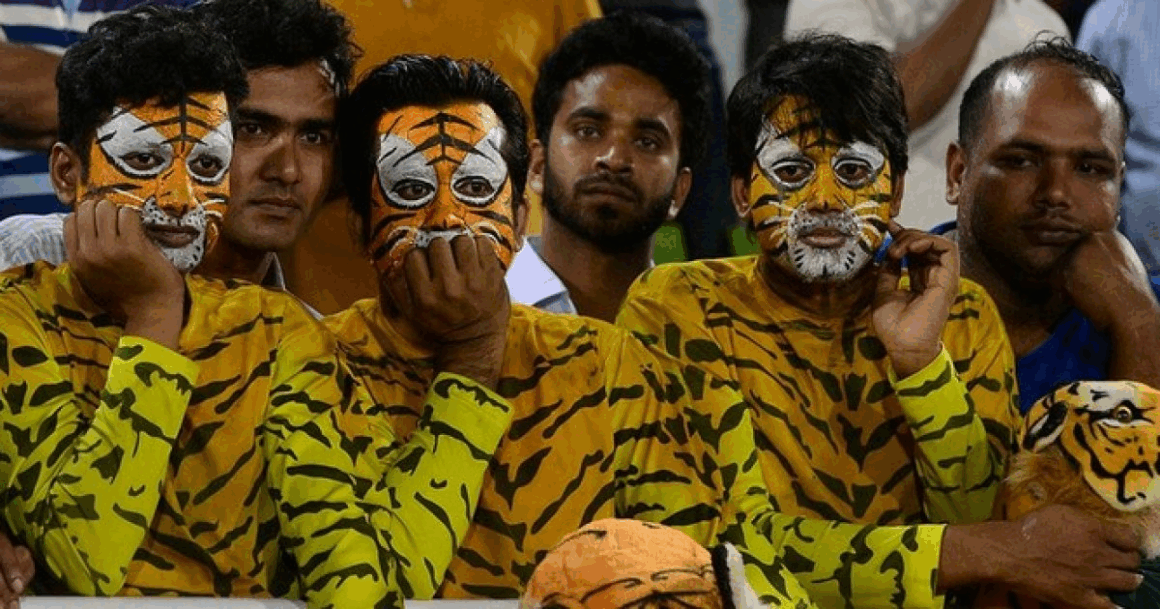On a yesterday-here-today-gone tomorrow kind of day, whereby one exchanges one’s telephone for a new one a year and switches social sites as they change socks, one thing remains pretty reliable—sportsmen and loyalty. Come betrayals, streaks of lost games, calamitous one-season stints with bitter concluions, they’re back. They don’t turn jelly on you, they don’t change tunes on you, they don’t switch loyalty as if one’s name was attached.
It’s not passion—it’s identification. If you’re from Europe cheering for your European football club past midnight, or from Dhaka cheering for the Bangladesh cricketing team, it’s precisely the same feeling: this isn’t simply a passion—it’s who you’re. And this inner identification has attached to it a specificity of our global modern age: a people that stand up season after season for each loss after each triumph.
Next question is why sporting groups become distinct from other groups? Why does loyalty become unconditional for them even if they’re underperforming? It’s time to examine the psychology, passion, and culture behind the most passionate groups on Earth—and how sites like x1bet are presenting more opportunities than ever for supporters to stay active.
It Starts with Belonging
On a simple level, being a fan is being a part of something larger than yourself. Teams are more than players on a pitch—cities, nations, decades, even memories. To a Bangladesh fan, his or her national cricket team would be memories of afternoons as a child, time with relatives, or that rush coming out onto a pitch to hear that anthem played.
Cheering for a team is aligning yourself with a global tribe. It allows a sense of instant identification with people you don’t even know half a world away—who become a surrogate family. You don’t necessarily know their name, yet if they wear a jersey of a club that you cheer for yourself, you’ll certainly nod, grimace, or shout “what a goal!” in harmony.
That passionate love that somehow endows one with loyalty to fandom. When you’re a fan of a team, you’re invested. You cry if they lose. You cheer if they win. You hang in—if it hurts. And that’s a kind of loyalty.
Loyalty Despite the Odds
One of the most interesting aspects of sporting fandom is that it makes no sense to be a loyalist. You’d think that supporters would run away from teams that never achieve anything, or change when their top star calls it quits. But they don’t. There are supporters who stick with teams for decades without them hoisting a trophy. But year after year they return—hopeful-eyed, optimistic, ready to believe again.

There’s a different loyalty. It isn’t statistical success, it’s emotional payback. Misery makes loyalty more intense in a way. To be a loser makes one’s people comfortable with being patient. To be waiting for a win makes it a whole damn sight more delicious when it does finally arrive. And between times, all that time, the fellowship tightens up.
Sites such as x1bet enable fans to remain connected even through difficult seasons. By having access to information, analysis, and interactivity features, they are able to track each game with new insight. It is not merely a matter of gambling or forecasting—it’s a matter of comprehending the sport more fully, remaining engaged, and communicating that experience with others.
Tradition, Rituals, and Identity
What renders sports fandom sacred is ritual. Putting on your team’s jersey for match day. Sitting in the same position each time. Watching together with the same group of friends. These routines could appear trivial, but they establish consistency, memory, and feeling.
In Bangladesh, a cricket match becomes a family event. Generations sit in front of the television, snacks are shared, and arguments begin before a single ball is delivered. It’s more than sport—it’s culture.
That repetition creates identity. It says to you: this is my team, these are my people, this is my moment. And that sort of identity is difficult to replace. That’s why fans remain loyal even when the rest of their life changes.
Conclusion: Loyalty That Transcends the Scoreboard
So why are sports fans some of the most loyal groups on earth? Because their allegiance extends well beyond the action on the scoreboard. It’s emotional. It’s cultural. It’s human. Fans don’t just follow a team—they live it. They pass it down. They carry it with them. And they’ll show up, time and again, regardless of the result. In a time when everything is disposable, sports loyalty is a reminder of something permanent. A connection that does not snap when the team loses. A devotion that is not determined by victory. A family that does not abandon you, even during the off-season. And thanks to platforms such as x1bet, that loyalty isn’t diminishing—it’s changing. Getting smarter, more networked, and more passionate than ever. Because once you’re a real fan, you’re in it for life.


